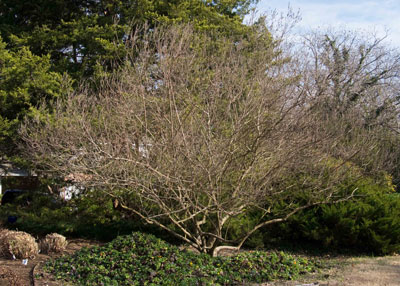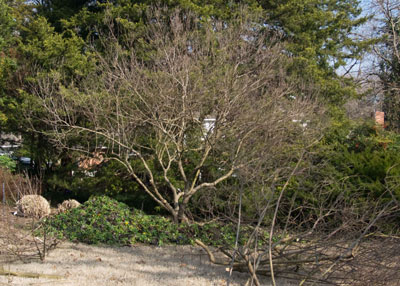Pruning Vitex

Photo: Vitex is also called chaste tree and Texas lilac (although it’s not fragrant and is unrelated to true lilacs).
When I was a kid in College Station, vitex shrubs filled corners of backyards. City lots were much bigger then, and it wasn’t uncommon for the plants to grow 15 or 18 feet tall and 20 feet wide. And, unless you take action to the contrary, vitex plants still will grow that large.
I thinned our vitex out several winters ago. We removed several of the largest branches that were either too close to the ground or rubbing against one another. I trimmed away some that had grown too tall, making sure I didn’t leave any stubs in the process.
The “Before” and “After” photos of our pruning work will show you how much we accomplished. It opened the plant up considerably and left it with a more attractive and natural growth form, but it did require patience. Two of us spent about 90 minutes doing this pruning. Anything faster would likely have been done carelessly.

Photo: Sperry vitex before pruning

Photo: Sperry vitex after careful reshaping and size reduction
South Texans sometimes do heavy pruning of vitex immediately after the spring bloom in an effort to spur vigorous regrowth. The growing season in Houston, Austin and San Antonio is enough longer that the plants can produce a second good round of blooms. That’s not as likely to happen in North Texas, and I personally don’t practice it in our rural Collin County gardens. But annual mid-winter pruning to maintain the plants’ natural form is certainly a good plan.
Finally, consider a dwarf form of the shrub. Shorter selections are available in the market. One carries the all-time great name: ‘Blue Diddley.’
